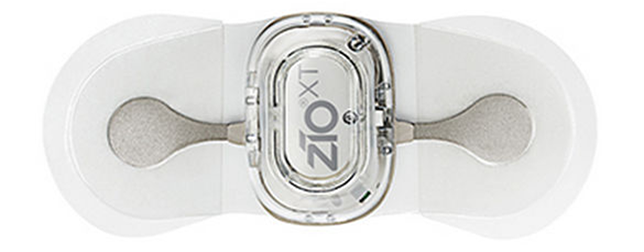A wearable ECG monitoring patch can identify people with asymptomatic atrial fibrillation (AFib) earlier and more efficiently than regular care, according to a research published in Jama. Researchers from The Scripps Research Institute used an ECG screening wearable called iRhythm Zio patch to monitor patients with a risk for the condition.
Researchers found that patients who started monitoring right away were significantly more likely to receive an AFib diagnosis compared to those who delayed monitoring by 4 months. Additionally, after one year, individuals who underwent monitoring at any point more frequently received an AFib diagnosis compared to those in a matched control group receiving routine care.
“Our study shows an almost threefold improvement in the rate of diagnosis of a-fib in those actively monitored compared to usual care,” Dr. Steven Steinhubl, director of digital medicine at Scripps Translational Science Institute and an associate professor at The Scripps Research Institute, said in a statement. “Timely diagnosis of a-fib more effectively can enable the initiation of effective therapies and help reduce strokes and death.”
Atrial Fibrillation is a quivering or irregular heartbeat, sometimes caused by a heart valve problem, that can lead to the formation of blood clots in the heart. These clots can travel to the brain and trigger a stroke. This is the most common sustained arrhythmia. AFib is responsible for almost one-third of all strokes. Among individuals who experience a stroke due to AFib, 20% were not aware they had AFib until the time of their stroke or shortly thereafter. At least 2.7 million Americans are living with AFib.
For their study, the researchers recruited a randomized group of 2,659 participants. Among them, 1,738 individuals completed a period of active monitoring with the iRhythm Zio – a water-resistant ECG monitoring patch that lasts for up to 2 weeks.
Participants in the monitoring batch were then were divided into two groups. One group received the patch immediately at the study onset, and the other group (the delayed group), got their patches 4 months later. The team then compared the diagnosis rates of the two groups at the four-month point, and after one year when both groups had received monitoring.
Read more Are Sensors Going to Revolutionize Healthcare?
In a secondary observational analysis, these patient groups were matched 1:2 with a control cohort, bringing the total sample to 5,214 patients.
Among the participants selected to receive the patches, 3.9% of the immediate monitoring group was diagnosed with atrial fibrillation at 4 months, compared to .9% of the delayed monitoring group. In the secondary observational analysis, atrial fibrillation was diagnosed in 6.7% of participants monitored by the patch, as opposed to a 2.6% diagnosis rate observed among a patient-matched control group receiving the standard of care.
The researchers noted that individuals taking off their patches and changing insurers were limiting factors in the study. But they say the patches could be the way of the future.













